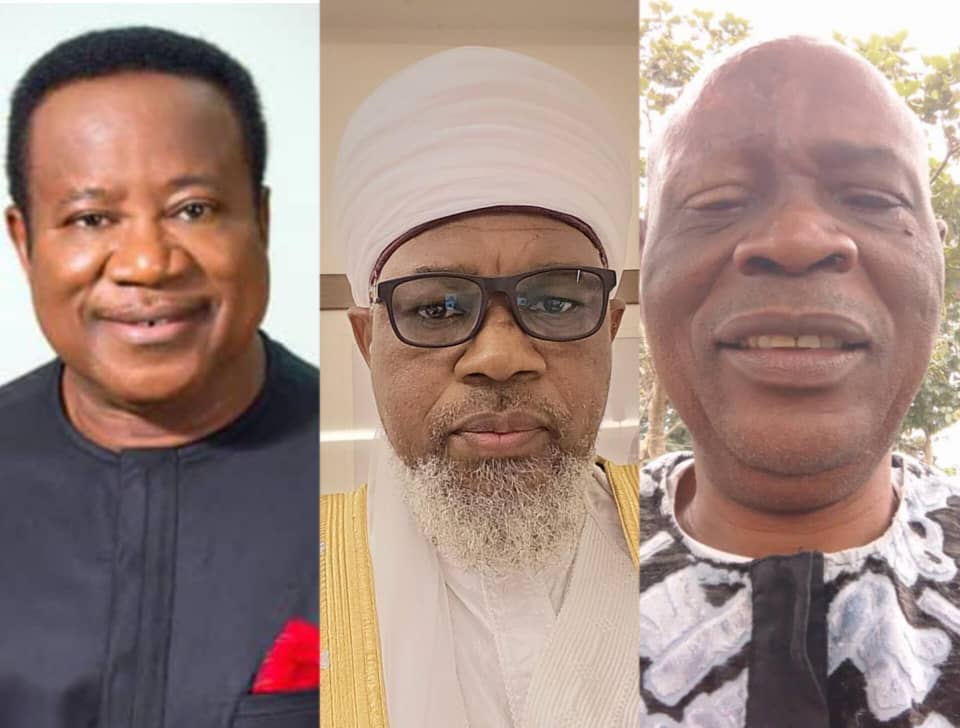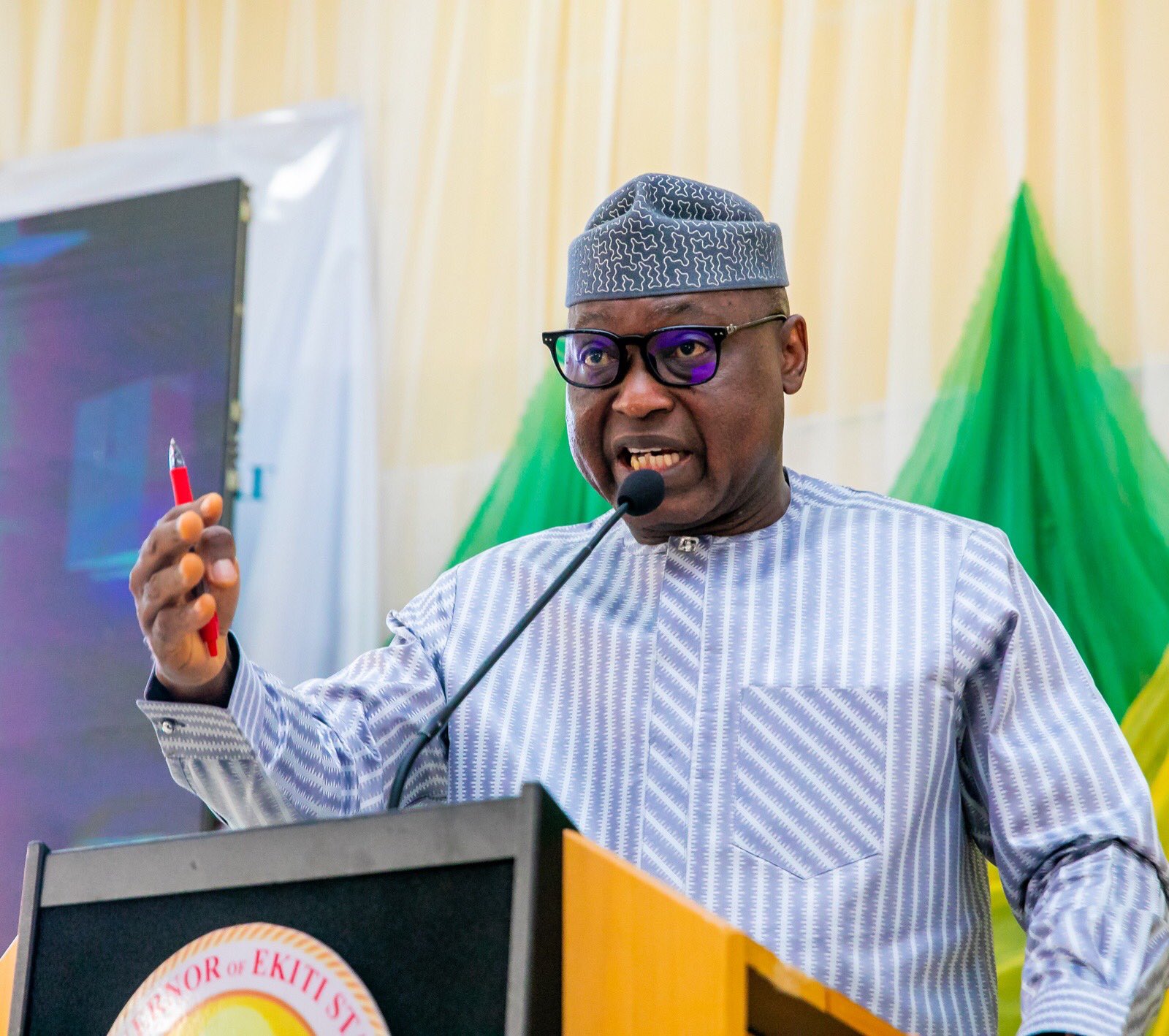“Yoruba religionists are urged to give great credits to our forebears who invented the traditional and cultural practices. They were well thought out in the overriding interest of peace in the land”
By Nudoiba Ojen
Christian preacher, Pastor Femi Emmanuel and Islamic cleric, Sheikh Abdur-Rahman Ahmad, have urged Yoruba obas to embrace modernity and immediately stop all cultural practices shrouded in secrecy, barbarism and fetishism.
But a notable Ifa Priest and an Associate Professor of African Indigenous Knowledge at University of Ibadan, Dr Obafemi Jegede, tasked Yoruba religionists to give great credits to our forebears who invented all the traditional and cultural practices now being tagged as fetish, arguing that they were well thought out in the overriding interest of peace in the land”.

The trio spoke on the topic, “Secrecy vs Transparency: The Great Battle Over Yoruba Monarchs’ Burial Traditions and The Future of Yoruba Culture” during the popular monthly interview discourse, Boiling Point Arena, transmitted via Zoom and broadcast live on six radio stations across Lagos, Ogun and Delta states.
The programme, hosted by a Media Professional, Dr Ayo Arowojolu, was chaired by a frontline traditional ruler, the Olówu of Owu Kingdom, Oba Prof Saka Matemilola, who also defended his Islamic faith, saying “I was not chosen by Ifa”.
Pastor Emmanuel and Sheikh Ahmad, in their opinions, stated that whatever is not transparent and offensive to decency and human reasoning like offering sacrifices and rituals must be done away with.
Pastor Emmanuel who is the Presiding Pastor of Living Spring Church International, warned that something urgent must be done by leaders of thought in Yorubaland so that the rich culture and tradition of the people should not go into extinction.

The pastor said, “Culture and tradition are very important. A people without a culture is a lost race. Culture gives identity to people. It preserves their heritage and also guides their beliefs. It also fosters unity among the people. But, culture should be appreciated and preserved.
“Even in the Bible especially in the Old Testament, we talk about the Jewish culture. Many of them, they still preserve and practice. And of course, many they have also dropped.
“Culture can go into extinction if not regularly reviewed. Nigerians have inquisitive mind. Life itself is dynamic, which means things keep changing with the changing time. Life is dynamic, and it’s not static. For a people’s culture not to go into extinction, like the Yoruba cultural tradition seems to be doing, it must be subject to review in line with the current realities. It must be subject to research, review, documentation and improvement.
“You will agree with me that many aspect of our culture and tradition are shrouded in secrecy, in mysticism, in superstition, and even taboos, especially that of Obaship enthronement.

“Faith is important. You must draw a line between tradition and faith. It’s a matter of conscience. A born-again child of God who is in the line of royalty should feel free to go into Obaship, but all the cards must be put on the table. And all those secret things, if they are not acceptable to his conscience, he should be able to walk away. Must also know where there is a contradiction and draw a line between the culture, his faith and his conscience.”
Sheikh Abdur-Rahman, on his part, amplified almost same viewpoints of Pastor Emmanuel and warned traditionalists not to screen out people from kingship on the basis of their faith.
Sheikh Ahmad said, “I do not see essentially a fundamental contradiction between culture and Islam. Islam is not anti-culture. It accepts culture and tradition on its own terms. Islam has a filter through which it assesses compatibility and compliance to the extent that Islam views cultures as essentially part of human society and human nature.
“But one thing that is key is that culture is evolving, and it is dynamic. The Yoruba culture is dynamic, and any culture that refuses to adapt to changing times will die and expire.
“There is a new trend that traditionalists now do and they are the ones causing embarrassment to Yorubas. They need to be told that you cannot restrict movement of people in this modern time. You cannot impose curfew on a given area. Only the government can impose curfew. They will say some people should not go out after 10pm until 6am. All these restriction of movement must be reviewed. It is not good for the nation. It is not good for diversity. It’s not good for peaceful coexistence, and it is time for us to sit down and agree on this.

“Through the adherents of different religions, we can find humanity. We can tolerate one another. Nobody can legislate particular religion out of existence. And, for us to continue to coexist, we must not only tolerate. You must go beyond tolerating one another. We must accredit one another. This is where the wisdom is. This is where the future is.
“I want to emphasize that for us to have a peaceful and harmonious Yoruba land, we must continue to allow individual convictions that do not harm the society in any way. What is the harm that, the right of a king to be buried according to his religious conviction? What harm does it do to society? What harm does it do to the community? This is not what is important.”
In contrast, Dr Jegede who is an expert in Ifa, who stoutly defended all the myths and sacredness surrounding Yoruba traditional practices as exaggerated, saying they are “cooked up” stories targeted at drawing them away from their original roots.
The don and Ifa priest added an interesting dimension to the debate when he said, “The reasons why many kings want to play it the Christian or Muslim way, once enthroned, is because they want to go to heaven and I say very clearly, there’s no heaven that is better than this earth where we are. This is the best place in all the planets, in all the universe”.
Jegede tasked Yoruba religionists “to give great credits to our forebears who invented all the traditional and cultural practices now being tagged as fetish, arguing that they were well thought out in the overriding interest of peace in the land”.




